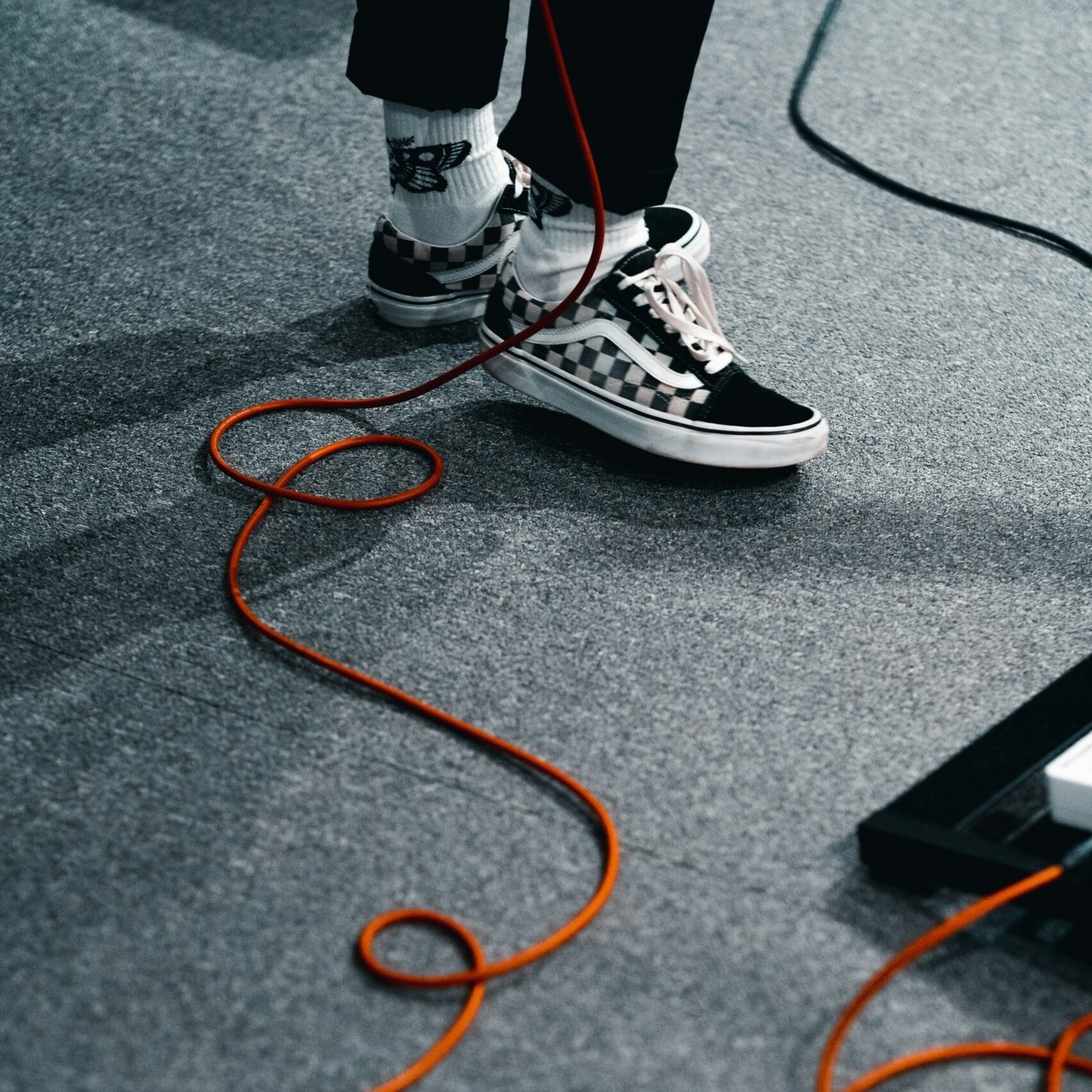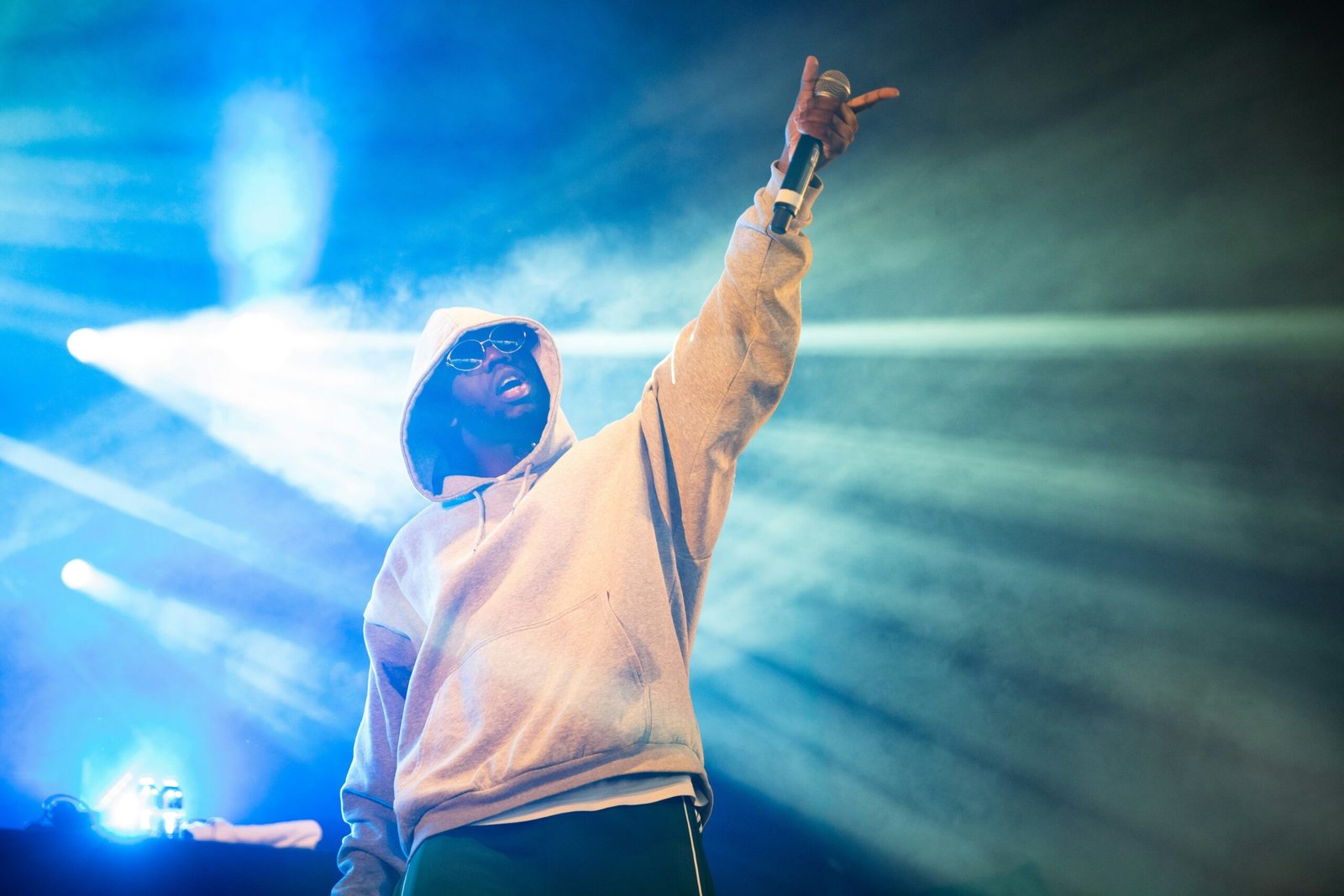

How to Be a Successful Indie Artist
Understanding the Indie Artist Scene
The term “indie artist” refers to musicians who operate independently of major record labels. Unlike mainstream artists, who often have extensive support from large, well-funded organizations, indie artists typically manage their own careers, including production, distribution, and marketing. This autonomy allows them to maintain creative control over their music, but it also requires a high level of self-reliance and entrepreneurship.
The distinction between indie and mainstream artists lies not only in their operational approach but also in their artistic expression. Indie artists often experiment with unique sounds and genres that may not conform to commercial trends. This freedom to innovate attracts many musicians to the indie route, seeking to create authentic and personal art without the constraints imposed by mainstream market demands.
In recent years, the indie music industry has flourished, thanks in part to technological advancements. Digital platforms such as Spotify, Bandcamp, and SoundCloud have democratized music distribution, enabling indie artists to reach global audiences without the need for traditional record deals. Social media also plays a crucial role, allowing artists to engage directly with fans, build communities, and promote their work.
Current trends in the indie music scene reveal a growing appreciation for diverse and niche genres. Audiences are increasingly drawn to the authenticity and originality that indie artists offer, contrasting with the often formulaic nature of mainstream music. Additionally, the rise of crowdfunding platforms like Kickstarter and Patreon has provided indie musicians with alternative funding sources, further empowering them to produce and share their art.
Opportunities abound for indie artists in today’s music landscape. From virtual concerts and online collaborations to sync licensing deals in film, TV, and advertising, the avenues for exposure and revenue are expanding. While the journey of an indie artist can be challenging, the evolving industry dynamics present unprecedented possibilities for those who are dedicated and resourceful.
Discovering Your Unique Sound and Artistic Identity
For aspiring indie artists, establishing a distinct musical identity is paramount. This process begins with discovering your unique sound—an endeavor that not only differentiates you from the myriad of artists in the industry but also creates a lasting impression on your audience. To achieve this, it is crucial to immerse yourself in a broad spectrum of musical genres. By exploring diverse sounds, you can identify elements that resonate with you, ultimately blending them to craft your original style.
Understanding your personal influences is another critical step in this journey. Reflect on the artists who have inspired you and dissect what specifically draws you to their music. Is it their lyrical content, their vocal techniques, or perhaps their innovative production methods? By analyzing these factors, you can incorporate similar attributes into your own music, while still maintaining a fresh and authentic approach.
Creating a consistent brand that resonates with your target audience is equally important. Your brand is a holistic representation of who you are as an artist, encompassing not just your music, but also your visual aesthetics, social media presence, and overall message. Ensure that all these elements align cohesively, presenting a unified image that fans can relate to and support.
Authenticity is the cornerstone of a successful indie artist’s journey. In a world saturated with manufactured personas, staying true to oneself can be a powerful differentiator. Authenticity fosters a genuine connection with your audience, as listeners are more likely to engage with artists who are sincere and transparent about their artistic vision and personal experiences. Therefore, never compromise your true self in the pursuit of trends or fleeting success.
In conclusion, discovering your unique sound and artistic identity is an ongoing process of self-exploration, influence integration, and brand development. By remaining authentic and true to your creative instincts, you will not only carve out a niche in the competitive music industry but also build a loyal and supportive fanbase.
Building a Strong Online Presence
In today’s digital age, mastering your journey as an indie artist necessitates a robust online presence. A professional website serves as the cornerstone of your digital identity. It should be visually appealing, easy to navigate, and regularly updated with your latest work, tour dates, and news. A well-maintained website not only showcases your music but also provides a centralized platform for fans to engage with your content and purchase merchandise.
Social media platforms are equally crucial in building and maintaining a strong online presence. Platforms such as Instagram, Facebook, Twitter, and TikTok offer unparalleled opportunities to connect with fans and share your artistic journey. Each platform has its unique strengths; for example, Instagram is ideal for visual content, while Twitter excels in real-time updates and engaging in conversations. Consistent posting, utilizing relevant hashtags, and interacting with followers can significantly enhance your reach and engagement.
Beyond social media, content creation plays a pivotal role in keeping your audience engaged. Music videos, live streams, and behind-the-scenes footage can offer fans a deeper connection to your work and personality. Live streaming performances or Q&A sessions can create a sense of community and immediacy, making fans feel involved in your journey. Regularly updating your YouTube channel with high-quality videos can also amplify your visibility and attract new listeners.
Engagement is key in maintaining an active online presence. Responding to comments, sharing fan-generated content, and being approachable can foster a loyal fan base. Email newsletters are another effective tool for direct communication with your audience, allowing you to share exclusive content, updates, and offers.
In summary, a strong online presence is indispensable for indie artists. By leveraging a professional website, social media platforms, and engaging content creation, you can build a dedicated fan base and propel your career forward.
Networking and Collaborating with Other Artists
In the competitive landscape of the music industry, networking and collaboration are instrumental in achieving success as an indie artist. Building relationships with other artists, producers, and industry professionals can open doors to new opportunities, creative synergies, and valuable insights. Collaboration not only broadens your artistic horizons but also helps in reaching wider audiences.
To effectively network, one must approach others with genuine interest and respect. Start by identifying artists and professionals whose work you admire and find compelling. Reach out through social media platforms or professional networks like LinkedIn, expressing your appreciation for their work and proposing potential collaborations. Remember, a well-crafted and personalized message can significantly increase your chances of a positive response.
Attending industry events such as music festivals, conferences, and workshops offers direct access to like-minded professionals. These gatherings provide an excellent environment for face-to-face interactions, where you can build rapport and discuss potential projects. Make sure to prepare an elevator pitch about your music and career goals, and always carry business cards or digital contact information to facilitate follow-ups.
In addition to physical events, online communities serve as a valuable resource for networking. Platforms like SoundCloud, Bandcamp, and music-specific forums allow you to connect with a global network of artists and producers. Joining groups and participating in discussions can help you stay informed about industry trends and discover collaboration opportunities. Showcasing your work in these communities can attract potential collaborators who share your artistic vision.
Supporting fellow indie artists is equally crucial. Attend their gigs, promote their music on your social media, and provide constructive feedback. This reciprocal support helps in building a strong network where mutual growth is encouraged. Collaborative projects, such as joint performances, co-writing sessions, or remixing each other’s tracks, foster creative growth and enhance visibility for all involved parties.
In conclusion, diligent networking and meaningful collaborations are pivotal for indie artists aiming to thrive in the music industry. By approaching potential collaborators with authenticity, participating in industry events, leveraging online communities, and supporting fellow artists, you can build a robust professional network that propels your musical journey forward.
Monetizing Your Music
Monetizing your music as an indie artist requires a strategic approach to harness various revenue streams effectively. One of the primary methods is selling your music through digital platforms such as iTunes, Bandcamp, and Amazon Music. These platforms provide you with a global audience while offering substantial control over pricing and distribution. Additionally, streaming services like Spotify, Apple Music, and Tidal generate royalties based on the number of streams your songs receive. While the per-stream revenue might seem minimal, a large and engaged listener base can significantly boost your income over time.
Another lucrative avenue is merchandise sales. Branded apparel, physical albums, posters, and other memorabilia not only serve as additional revenue sources but also help in solidifying your brand identity among fans. Establishing an online store or partnering with e-commerce platforms can facilitate the seamless sale of these items.
Live performances remain a cornerstone for income generation. Touring not only allows you to connect with your audience on a personal level but also opens up opportunities for ticket sales, on-site merchandise sales, and even sponsorship deals. Engaging with local venues, festivals, and leveraging social media to promote your shows can greatly enhance your reach and profitability.
Maximizing income goes beyond traditional sales and performances. Licensing your music for use in films, TV shows, commercials, and video games can provide substantial revenue and exposure. Platforms like Musicbed and Songtradr can connect you with opportunities for sync licensing. Crowdfunding is another powerful tool; platforms like Patreon and Kickstarter enable fans to support your projects directly, offering them exclusive content, early access to new music, and personalized merchandise in return.
Offering exclusive content to fans, such as behind-the-scenes footage, unreleased tracks, and personalized messages, can also foster a loyal fanbase willing to pay for unique experiences. Utilizing platforms like Patreon or creating subscription-based services can turn this exclusivity into a steady income stream.
By diversifying your revenue streams and strategically leveraging each opportunity, you can create a sustainable and profitable career as an indie artist.
Promoting Your Music and Reaching a Wider Audience
As an indie artist, promoting your music effectively is crucial for reaching a broader audience and establishing a successful career. A well-rounded marketing strategy can significantly enhance your visibility. One essential tool is a comprehensive press kit. Your press kit should include a professional bio, high-quality photos, your music samples, and links to your social media profiles and streaming platforms. This kit serves as a one-stop resource for journalists, bloggers, and influencers to learn about you and your music.
Writing engaging press releases is another critical component. A press release should be concise and newsworthy, highlighting the unique aspects of your music and any upcoming releases or events. Distributing these press releases to music blogs and influencers can help you gain media coverage and reach potential fans. Building relationships with these industry figures can boost your credibility and expand your network.
Social media ads are a potent tool for reaching new listeners. Platforms like Facebook, Instagram, and YouTube offer targeted ad options that allow you to reach specific demographics. Crafting compelling ad content with captivating visuals and clear calls-to-action can drive traffic to your music and convert casual listeners into dedicated fans. Additionally, securing playlist placements on popular streaming services like Spotify and Apple Music can expose your tracks to a broader audience.
Email marketing remains a powerful method for engaging with your fanbase. By building an email list, you can keep your audience informed about new releases, upcoming shows, and exclusive content. Personalized and consistent communication through email can foster a loyal fanbase and encourage direct support for your music.
Incorporating these marketing strategies can significantly enhance your visibility and help you reach a wider audience. By creating a professional press kit, writing effective press releases, leveraging social media ads, securing playlist placements, and utilizing email marketing, you can promote your music successfully and attract new fans.
Managing Finances and Legal Matters
For indie artists, financial stability and legal protection are paramount to sustaining a successful career. Properly managing finances involves meticulous budgeting and tracking of all income and expenses. Begin by creating a comprehensive budget that outlines your projected earnings and planned expenditures. This budget should account for both fixed costs, such as studio rent and equipment maintenance, and variable costs, like marketing and travel expenses. Regularly updating this budget ensures you are aware of your financial health and can make informed decisions about your career.
Maintaining clear and organized financial records is equally important. Utilize accounting software or spreadsheets to record every transaction. This habit not only helps in monitoring your cash flow but also simplifies the process when tax season arrives. Moreover, setting aside a portion of your earnings for taxes can prevent unexpected financial strain. Consider consulting with a financial advisor who specializes in working with artists to help navigate the complexities of tax deductions, investment opportunities, and long-term financial planning.
On the legal front, protecting your creative work through copyright is crucial. Copyright ensures that you retain the exclusive rights to your music, artwork, or other creative outputs. Registering your work with a copyright office can provide additional legal protection and make it easier to address potential infringements. Additionally, understanding how royalties work and ensuring you receive fair compensation from streaming platforms, performances, and sales is essential. Organizations such as performance rights organizations (PROs) can assist in collecting royalties on your behalf.
Contracts play a significant role in an indie artist’s career. Whether it’s a performance agreement, a collaboration deal, or a licensing contract, it’s vital to thoroughly review and understand all terms before signing. Contracts should clearly outline the responsibilities, payment terms, and rights of all parties involved. When in doubt, seeking professional legal advice can safeguard your interests and prevent potential disputes.
Ultimately, the combination of strategic financial management and robust legal protection forms the backbone of a sustainable career for an indie artist. By staying informed and seeking professional guidance when necessary, you can navigate the complexities of the industry and focus on what you do best—creating art.
Maintaining Motivation and Overcoming Challenges
As an indie artist, the journey can be both exhilarating and daunting. Maintaining motivation while navigating the ups and downs of the creative process is essential for long-term success. The first step in sustaining motivation is setting realistic and achievable goals. Break down larger aspirations into smaller, manageable tasks. This approach not only makes the process less overwhelming but also provides a sense of accomplishment as you check off each milestone.
Dealing with rejection and criticism is an inevitable part of the artistic journey. It’s crucial to develop a thick skin and view feedback as an opportunity for growth rather than a setback. Constructive criticism can offer valuable insights that help refine your craft. Remember, every successful indie artist has faced rejection at some point; persistence and resilience are key to overcoming these hurdles.
Self-care is another vital component of maintaining motivation. The creative process can be mentally and emotionally draining, making it essential to take breaks and recharge. Engage in activities that rejuvenate your mind and body, whether it’s a walk in nature, practicing mindfulness, or indulging in a hobby unrelated to your art. A well-rested mind is more creative and productive.
Building a support system can significantly impact your journey as an indie artist. Surround yourself with like-minded individuals who understand the challenges you face. This network can provide encouragement, share resources, and offer constructive feedback. Online communities, local artist groups, and mentorship programs are excellent avenues for finding this support.
Lastly, celebrate small victories along the way. Acknowledge your progress and reward yourself for achieving minor milestones. These celebrations serve as reminders of your capabilities and fuel your motivation to keep pushing forward. The journey of being an indie artist is a marathon, not a sprint; recognizing and appreciating your achievements, no matter how small, can make all the difference.





